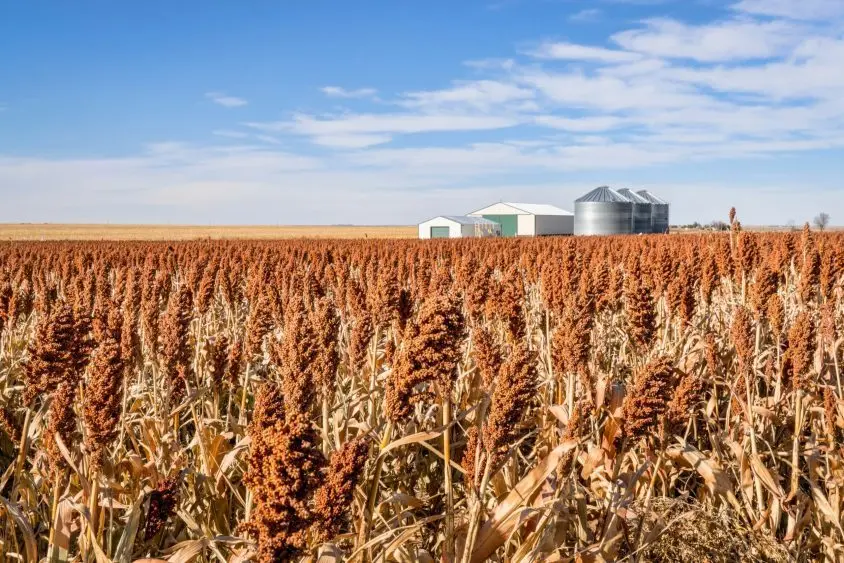(WASHINGTON D.C.) — On Sunday, the Office of the U.S. Trade Representative (USTR) announced agreements on reciprocal trade with Malaysia and Cambodia and frameworks for agreements on reciprocal trade with Thailand and Vietnam.
USTR Ambassador Jamieson Greer said in a statement in part that “these landmark deals demonstrate that America can maintain tariffs to shrink the goods trade deficit while opening new markets for American farmers, ranchers, workers, and manufacturers. I thank my counterparts from Malaysia, Cambodia, Thailand, and Vietnam for their collaboration and commitment in achieving a more balanced trade relationship with the United States.”
You can read more on the deals from the USTR: click here.
In response, various agriculture groups shared appreciation for the announcement. National Corn Growers Association President Jed Bower highlighted that some of the deals include new market access for ethanol as well as additional opportunities for corn and corn products, like distiller dried grain solubles.
“This is all very good news for the nation’s corn growers. Eliminating tariffs on ethanol exports to Malaysia and Cambodia will boost demand,” according to Bower. “We are encouraged to see that the framework for Thailand included agriculture purchases of corn and DDGS. The announced framework for Vietnam is also promising, as this is already a robust market for DDGS and corn growers are well positioned to supply corn and ethanol as well. We look forward to reviewing more details on the frameworks for Thailand and Vietnam. Corn growers have been calling for deals that will open new markets, and we applaud the Trump administration for listening and acting on our request.”
The positive sentiment on ethanol opportunities was shared by Growth Energy as well. “American farmers and rural communities want and need new markets—like the ones that will be created and enhanced by these new trade agreements,” said Growth Energy CEO Emily Skor. “Global demand for ethanol is growing and the Trump administration continues to find ways to create new opportunities for this industry while positioning American producers to make the most of them. These new deals will be welcome news across the heartland, and we commend USTR for its commitment to building American energy dominance through the strength of our trade relationships.”
The meat and dairy sector also shared positive reaction to the announced deals and frameworks. “USMEF greatly appreciates USTR’s tireless efforts to address both tariff and non-tariff barriers that have kept the U.S. as a minor supplier of red meat to the ASEAN region,” according to U.S. Meat Export Federation (USMEF) President and CEO Dan Halstrom. “With the U.S. beef industry currently lacking access to China, improved access to Southeast Asia is desperately needed to provide competing bids for beef cuts that are popular in Asia, but not demanded by American consumers. Exports of short plate, chuck short rib, rib fingers, omasum and other such items are critical to maximizing the value of every animal and stimulating the U.S. herd rebuild.”
Halstrom added that “For U.S. pork, exports have been the driver of industry growth, also enabling American consumers access to the bacon and ribs they love, while maximizing whole animal value through exports of feet, stomachs, picnics, brisket bones and bone-in hams. The ASEAN region is more critical than ever as an alternative market to China, especially for pork variety meats. U.S. beef and pork hold only minor import shares in Thailand, Vietnam, Malaysia and Cambodia due to the combination of tariff and non-tariff barriers. The growth potential is significant when these barriers are addressed through President Trump’s agreements. USMEF looks forward to swift implementation of the agreements with Malaysia and Cambodia, and hopes for further progress and implementation of agreements with Thailand and Vietnam, as well as follow through on the joint statement with Indonesia announced in July.”
USMEF also issued this fact sheet providing more context and detailing the potential benefits to the U.S. red meat industry if improved access to Southeast Asia is achieved.
The U.S. Dairy Export Council (USDEC) and the National Milk Producers Federation (NMPF) praised the announcement of new trade agreements with Malaysia and Cambodia and new trade agreement frameworks with Thailand and Vietnam, strengthening U.S. dairy’s position in Southeast Asia’s high-growth market.
“These agreements with Malaysia and Cambodia open new doors for U.S. dairy exports in two dynamic markets and the frameworks with Vietnam and Thailand offer the promise of more to come,” said Krysta Harden, president and CEO of USDEC. “By removing tariffs, addressing nontariff trade barriers and cutting red tape, the agreements will make it easier for U.S. suppliers to deliver the high-quality dairy ingredients and foods that Southeast Asia’s growing consumers demand. USDEC appreciates the great work of the U.S. negotiating team in securing these important results.”
“With these new agreements, the Administration has delivered big wins for America’s dairy farmers,” said Gregg Doud, president and CEO of NMPF. “Agreements like those struck with Malaysia and Cambodia will ensure we have fair access to Southeast Asia’s fast-growing markets. That’s essential so that our farmers and cooperatives can keep doing what they do best – producing top-quality milk and dairy products for families here at home and around the world. We look forward to working closely with the Administration as they turn the new frameworks with Vietnam and Thailand into strong deals as well.”
According to a news release from USDEC and NMPF, Malaysia, Vietnam and Thailand are already among the top twenty export destinations for U.S. dairy products, account for $118 million, $127 million and $87 million respectively in sales last year. The new deal comes as the EU advances negotiations on free trade agreements this year with Malaysia and Thailand while Vietnam entered the sixth year of its FTA with the EU this year. All three also have long-standing deals with New Zealand and Australia. In light of this, the U.S. agreements are particularly important to maintaining U.S. competitiveness in this key region. While U.S. dairy exports to Cambodia totaled only $3 million last year, it too offers potential for further growth.
In a news release, the International Dairy Foods Association added that “today’s announcement promises to deliver improved access for U.S. dairy in critical and growing Southeast Asian markets and will support the U.S. dairy industry’s efforts to strategically diversify exports away from an over-reliance on China,” said Michael Dykes, D.V.M., president and CEO of the International Dairy Foods Association (IDFA). “U.S. dairy exporters have been strengthening relationships in these key markets and region, and we will immediately implement on our plans to benefit from the new access announced today.”





